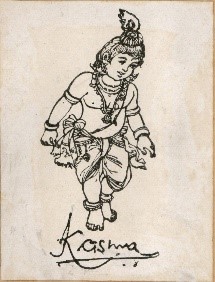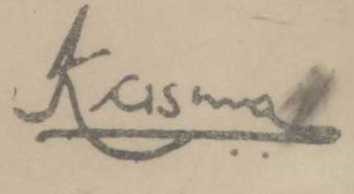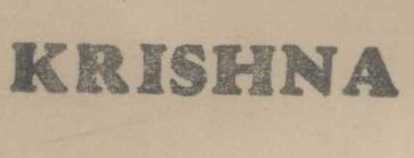Sweet makers fight over the name ‘Krishna’
Use of the name ‘Krishna’, one of the most revered Hindu God is the subject of trademark dispute between two sweet manufacturers. The Plaintiff, Sri Krishna Sweets Pvt. Ltd, filed the suit before the Addl. City Civil Judge, Bengaluru, alleging trademark infringement, passing off, etc, against the Defendant, Sri Krishna Sweets. An injunction application was also filed to restrain the Defendant from using the mark ‘Krishna’ in relation to their business.
The City Civil Judge after considering the pleadings and arguments dismissed the injunction application holding that no person can claim monopoly in respect of name of the deity ‘Lord Krishna’. Aggrieved by the trial court’s order refusing injunction, Plaintiff filed the appeal before the Karnataka High Court in Bangalore (now Bengaluru).
Grounds in Appeal:
- Plaintiff started the business as a partnership firm in the year 1979 under the name and style of ‘Sri Krishna Sweets’ and over the years has earned immense reputation and goodwill due to marketing, advertisement, salesmanship, quality of sweets which are manufactured and sold by them.
- They have several registrations in Class 30. The device of ‘Idol Krishna’
 and the word ‘Krishna’ written in stylised form
and the word ‘Krishna’ written in stylised form  and the word ‘KRISHNA’ in bold, capital letters,
and the word ‘KRISHNA’ in bold, capital letters,  are all registered in Class 30.
are all registered in Class 30. - Defendant who is also dealing in an identical business has deliberately adopted a phonetically, visually and structurally identical mark ‘Sri Krishna Sweets’.
- The adoption of the mark/name ‘Sri Krishna’ or ‘Krishna’ amounts to trademark infringement and passing off.
- Plaintiff is the prior user of the trademark, having used the same in respect of sweets and savouries for over forty years. They have made out a prima facie case for grant of injunction and balance of convenience is also in their favour.
- Trial court committed an error in dismissing the injunction petition and referring to the Parliamentary Standing Committee’s report on the Trademark Bill, 1993, and ignoring the fact that it was only a recommendation, but not the Law.
Defendant contends:
- The rival shops are situated at different places and the Plaintiff’s registered trademark ‘Krishna’ is entirely different from ‘Sri Krishna Sweets’.
- Lord Sri Krishna is their family deity and adoption, and use of the mark/name ‘Sri Krishna Sweets’ is bonafide. They have obtained tax registrations, GST and TIN numbers in the name of ‘Sri Krishna Sweets’ for their business.
The High court after considering the pleadings, arguments, and case laws held:
- Admittedly, the parties are engaged in the business of manufacture and sales of sweets and running their respective business under the same name and style ‘Sri Krishna Sweets’. Moreover, Plaintiff has obtained registration of its trademark ‘KRISHNA’ in the form of the device of idol Krishna, the word ‘Krishna’ written in the stylised form and also the word ‘KRISHNA’ in bold, capital letters. The materials on record show that Plaintiff is using the trade name ‘Sri Krishna Sweets’ in a distinctive manner.
- In the instant case, the mark that is registered by Plaintiff is ‘Krishna’, not ‘Sri Krishna Sweets’. That said, it also needs to be considered that Plaintiff is conducting business in the name ‘Sri Krishna Sweets’ and Defendant is also doing similar business in the same trade name ‘Sri Krishna Sweets’ which amounts to infringement under Section 29(5) of the Trademarks Act.
- The trial court while rejecting the injunction application had observed that the word ‘Krishna’ is the name of the deity worshipped by Hindus and the word ‘Sweet’ is a generic word, thus, Plaintiff cannot claim exclusivity over the words ‘Krishna’ and ‘Sweet’. The aforesaid finding is without proper analysis of the materials on record. It is legally settled that, merely because a registered trademark includes the name of the celebrated deity, by that itself it cannot be held that the proprietor of the trademark is not entitled to protection in the form of an injunction against the infringement of the registered trademark. However, the question of whether such a registered trademark is so general and can the person merely because using a word as a part of his trademark, restrain others from using the same word, maybe in a different device or format or style, is not the question to be looked into in this appeal.
- Moreover, the trial court also considered the opinion of the Parliamentary Standing Committee on Industry, which in its Eighth Report on the Trademarks Bill, 1993, opined that any symbol relating to religion, gods, goddesses, places of worship should not ordinarily be registered as a trademark. This is patently wrong. It is only a report of the Committee wherein it has expressed its opinion. Until the report is accepted, and the recommendations are made into law, it cannot be said that the name of the deity ought not to have been registered as a trademark.
- Plaintiff is the registered proprietor of the trademark ‘Krishna’ as a device under Class 30 and made substantial investments for the promotion of business under the name and style ‘Sri Krishna Sweets’. Moreover, Defendant is also running a similar business under an identical name and style ‘Sri Krishna Sweets’. Thus, there was sufficient material before the trial court to find out a prima facie case in favour of the Plaintiff.
In light of the above, the High Court allowed the appeal and set aside the order of the trial court.
Our comments
In a Civil Appeal No. 2138 of 2006, the Supreme Court was asked to determine whether the “registration of the word Ramayan as a trade mark, being the name of a Holy Book of Hindus, is prohibited under Section 9(2) of the Trade Marks Act, 1999”? Answering this question, the court emphatically held “whether any person can claim the name of a holy or religious book as a trademark for his goods or services marketed by him is clearly NO”. While the use of Krishna for sweets may not fall in this category as sweets are offered to the deity as part of daily prayer. Therefore, arguably may not hurt ‘religious susceptibilities of any class or section of the citizens of India’. However, in a general sense use of a deity name as a trademark to make profit may broadly fall foul of the provisions.



